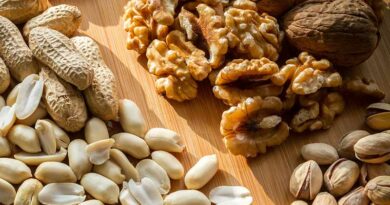Prebiotics, Probiotics & Anxiety

Introduction
On 25th May, I spotted a small item in the newspaper with the headline “Veg gives a bellyful of cheer.” I found a longer article online, with the headline “Eating more fruit and vegetables is a more efficient way of improving gut bacteria to help curb anxiety than trendy probiotic drinks, study finds” (Ref 1). It didn’t take long to trace the source of these articles to a paper by Yang et al in the General Psychiatry journal. The article is on open view here (Ref 2). It is called “Effects of regulating intestinal microbiota on anxiety symptoms: a systematic review.”
The newspaper headline grabbed my attention because of a recent conversation I had had. After my presentation at the Public Health Collaboration, someone who had written a book about gut health came up to me quite vexed about my talk, which said that fibre was a non-essential nutrient. She worked in mental health and said that the evidence for the benefit of fibre in mental health was strong. I asked was the evidence for fibre, or foods that contain fibre, or prebiotics, and was it causal or an association etc. We didn’t manage to conclude the debate.
I was thus interested to see this article and to have an opportunity to explore this subject further. To clarify where I’m at with fibre… Fibre is a non-essential nutrient. That is a fact. However, something non-essential can still be beneficial. In my research thus far, I have not found evidence that fibre per se is of direct benefit. There is evidence that a healthy gut microbiome is associated with general health. However, a healthy gut microbiome is as likely to reflect good health than to cause good health (the ‘marker, rather than maker, of health’ issue that is so often seen). There are many factors (natural birth, breastfeeding, not taking anti-biotics or antacids, eating real food, not eating junk etc) that make for a healthy microbiome. I’m open to fibre being one of significant benefit, but I’ve not just not found the evidence thus far.



